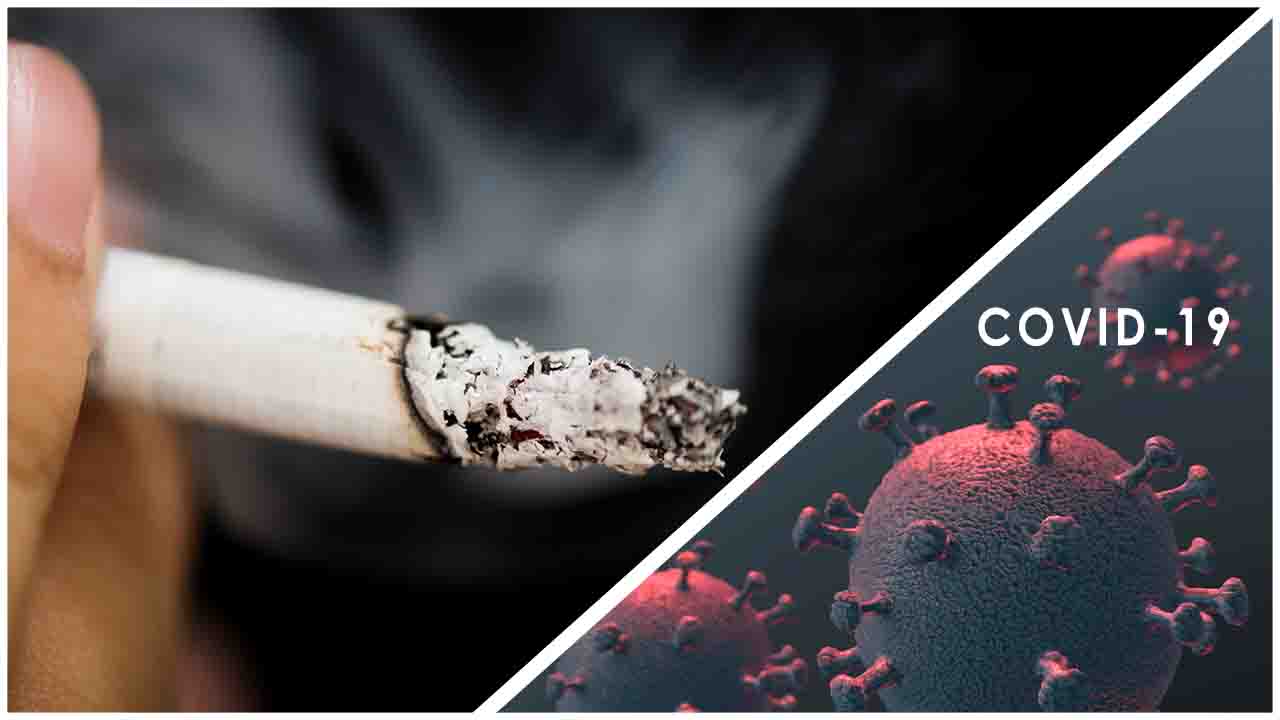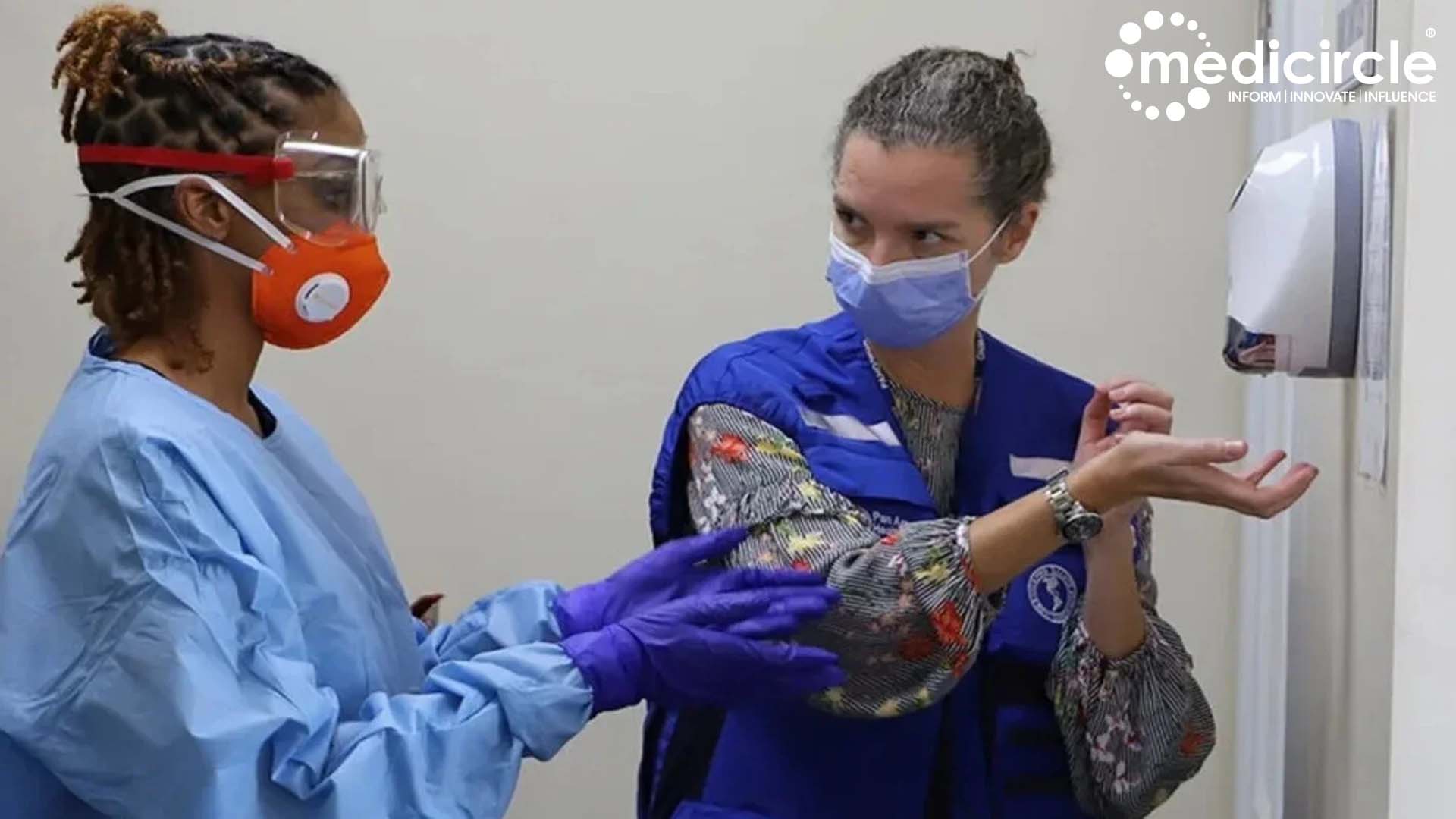The harms of tobacco use are well-established. Tobacco causes 8 million deaths every year from cardiovascular diseases, lung disorders, cancers, diabetes, and hypertension. Smoking tobacco is also a known risk factor for severe disease and death from many respiratory infections. In the COVID-19 pandemic, questions have been asked about clinical outcomes for smokers, and whether they are equally susceptible to infection, and if nicotine has any biological effect on the SAR-CoV-2 virus (the virus that causes COVID-19).At the time of writing, one clinical trial to test the effects of nicotine has been announced, but no trial registration record was found as of 12 May 2020.
This review therefore assesses the available peer-reviewed literature on the association between smoking and COVID-19, including 1) risk of infection by SARS-CoV-2; 2) hospitalization with COVID-19; and 3) severity of COVID-19 outcomes amongst hospitalized patients such as admission into intensive care units (ICU), use of ventilators and death.
A review was conducted on 12 May 2020 on smoking and COVID-19, using MEDLINE, EMBASE, Cochrane Library, and WHO Global Database. Quantitative primary research on adults or secondary analyses of such studies were included. Individual studies included in meta-analyses that were not otherwise identified in the search were sought.
Due to the preliminary nature of the many non-peer-reviewed reports issued during the COVID-19 pandemic, preprint repositories were deliberately excluded from this review.
Review of the evidence
Thirty-five peer-reviewed studies met the inclusion criteria. All included studies were in English. None examined tobacco use and the risk of infection or the risk of hospitalization. A total of 27 observational studies and eight meta-analyses were identified. All observational studies reported the prevalence of smoking amongst hospitalized COVID-19 patients. Two meta-analyses reported pooled prevalence of smoking in hospitalized patients using a subset of these studies (between 6 and 13 studies).
Nineteen of the 27 observational studies containing data on smoking status by severity of COVID-19 outcomes. Six meta-analyses were identified that examined the association between smoking and severity of COVID-19. Nine of the 19 studies were included in the six meta-analyses of smoking and severity (five to seven studies in each analysis), resulting in 1,604 sets of patient data being reported more than once. All data in the six meta-analyses come from patients in China.
What is the risk of smokers being infected by SARS-CoV-2?
There are currently no peer-reviewed studies that have evaluated the risk of SARS-CoV-2 infection among smokers. This research question requires well-designed population-based studies that control for age and relevant underlying risk factors.
What is the risk of smokers being hospitalized for COVID-19?
There are currently no peer-reviewed studies that directly estimate the risk of hospitalization with COVID-19 among smokers. However, 27 observational studies found that smokers constituted 1.4-18.5% of hospitalized adults.8-33 Two meta-analyses have been published which pooled the prevalence of smokers in hospitalized patients across studies based in China. The meta-analysis by Emami et al.34 analysed data for 2986 patients and found a pooled prevalence of smoking of 7.6% (3.8% -12.4%) while Farsalinos et al.35 analysed data for 5960 hospitalized patients and found a pooled prevalence of 6.5% (1.4% - 12.6%).
What is the risk of severe COVID-19 disease and death amongst smokers?
Meta-analyses:
Zhao et al analysed data from 7 studies (1726 patients) and found a statistically significant association between smoking and severity of COVID-19 outcomes amongst patients (Odds Ratio (OR) 2.0 (95% CI 1.3 – 3.1). The statistical significance disappeared when the largest study by Guan et al was removed from the analysis (a sensitivity test to see the impact of a single study on the findings of the meta-analysis). An updated version of this meta-analysis which included an additional study remained significant when this same sensitivity test was applied however.37 Zheng et al.38 analysed data from 5 studies totalling 1980 patients and found a statistically significant association between smoking and COVID-19 severity when using a fixed effects model: OR: 2.0 (95% CI 1.3 – 3.2). Lippi et al analysed data from 5 studies totalling 1399 patients and found a non-significant association between smoking and severity. Guo et al.,40 however, later identified errors in the calculation and concluded that this association was indeed statistically significant (OR 2.2 (95% CI 1.3 – 3.7). Vardavas et al analysed data from 5 studies totalling 1549 patients and calculated a relative risk that indicated a non-significant relationship between smoking and severity of COVID-19. However, the same authors found a statistically significant association between smoking status and primary endpoints of admission to Intensive Care Unit (ICU), ventilator use or death.
Individual studies not included in meta-analyses:
Ten studies were not included in any of the meta-analyses identified. One of these studies reported observational data for 7162 people in hospital and outpatient settings in the United States of America but did not include any statistical analysis of association.10 Another study of 323 hospitalized patients in Wuhan, China, reported a statistically significant association between smoking and severity of disease (OR 3.5 (95% CI 1.2 – 10.2).15 A third study reported on 8910 patients across 11 countries in Asia, Europe and North America and found a statistically significant association with death (OR of 1.8 (95% CI 1.3 – 2.5).23 Kozak et al.42 found a statistically significant association between smoking and ICU admission and mortality amongst 226 patients in Toronto, Canada. The remaining six studies were small case series (ranging from 11 to 145 people) that reported no statistically significant associations between smoking status and severity of COVID-1,8, 11, 18, 26, 43 apart from Yu et al.44 who reported on a study of 70 patients a statistically significant OR of 16.1 (95% CI 1.3 – 204.2) in a multivariate analysis examining the association between smoking and the exacerbation of pneumonia after treatment.
Limitations
Hospital based studies that report patient characteristics can suffer from several limitations, including poor data quality. Collecting smoking history is challenging in emergency contexts and severity of disease is often not clearly defined and is inconsistent across studies. Such studies are also prone to significant sampling bias. Characteristics of those who are hospitalized will differ by country and context depending on available resources, access to hospitals, clinical protocols and possibly other factors not considered in the studies. Further, most studies did not make statistical adjustments to account for age and other confounding factors.
Well-designed population-based studies are needed to address questions about the risk of infection by SARS-CoV-2 and the risk of hospitalization with COVID-19.
Conclusions
At the time of this review, the available evidence suggests that smoking is associated with increased severity of disease and death in hospitalized COVID-19 patients. Although likely related to severity, no evidence to quantify the risk to smokers of hospitalization with COVID-19 or of infection by SARS-CoV-2 was found in the peer-reviewed literature. Population-based studies are needed to address these questions.
Related WHO Recommendations
Given the well-established harms associated with tobacco use and second-hand smoke exposure; WHO recommends that tobacco users stop using tobacco. Proven interventions to help users quit include toll-free quit lines, mobile text-messaging cessation programmes, nicotine replacement therapies and other approved medications.

 As World No Tobacco Day approaches, a report by WHO to warn all the smokers of the risk they run from the pandemic
As World No Tobacco Day approaches, a report by WHO to warn all the smokers of the risk they run from the pandemic















.jpeg)















.jpg)


